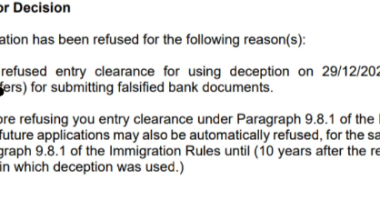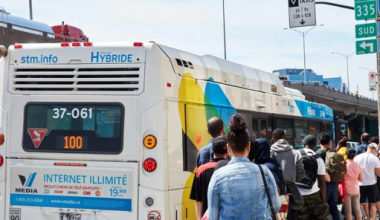As I sit here, reflecting on my journey through the world of autism advocacy, I can’t help but feel a mix of emotions.
You see, autism isn’t just a diagnosis; it’s a way of life, a different way of experiencing the world. But for many individuals on the autism spectrum, that experience can be significantly influenced by where they live. Today, we’re going to explore a challenging topic: the worst countries for autism. It’s not an easy subject to discuss, but it’s crucial for raising awareness and promoting change.
The Global Autism Landscape: A Personal Odyssey
Have you ever wondered how autism is perceived and treated around the world? I certainly have, and my curiosity led me on a global journey that opened my eyes to the stark realities faced by autistic individuals in different countries.
The Stigma Stronghold
In my travels, I’ve encountered countries where the stigma surrounding autism is so deeply ingrained that it’s almost tangible. You can feel it in the air, see it in the averted gazes, and hear it in the hushed whispers. In these places, autism isn’t just misunderstood – it’s feared and shunned.
Take, for example, South Korea. Despite being a technologically advanced nation, South Korea struggles with a profound stigma against developmental disorders.
I remember meeting a mother in Seoul who confided in me, tears in her eyes, that she couldn’t even tell her own family about her child’s autism diagnosis. The shame and fear of ostracism were overwhelming.
Similarly, in many parts of Africa, autism is still shrouded in superstition and misconception. In some communities, autistic children are believed to be possessed by evil spirits or cursed.
Can you imagine the impact this has on families? The isolation, the fear, the lack of support – it’s heartbreaking.
The Resource Desert
While stigma is a significant factor, it’s not the only one that determines how challenging a country can be for autistic individuals. Access to resources and support plays a crucial role.
During my time in India, I was struck by the vast disparity in autism services between urban and rural areas.
In major cities like Mumbai or Bangalore, you can find some world-class autism therapy centers. But venture into the countryside, and it’s a different story entirely. Millions of children go undiagnosed and unsupported simply because of where they live.
The situation is even more dire in countries like Venezuela, where economic crisis has decimated the healthcare system.
Autism therapies, special education, and even basic medical care are luxuries that many families simply can’t afford. It’s a stark reminder of how economic factors can dramatically impact the lives of autistic individuals.
The Legal Limbo
As we delve deeper into this topic, we must consider the legal frameworks – or lack thereof – in various countries.
You might be surprised to learn that many nations still have no specific laws protecting the rights of autistic individuals.
In Russia, for instance, there’s a troubling lack of legal recognition for autism as a distinct condition.
This translates into a severe shortage of specialized educational programs and support services.
Autistic children are often lumped together with children with other disabilities, receiving a one-size-fits-all approach that fails to address their unique needs.
Similarly, in many Middle Eastern countries, the legal system provides little to no protection against discrimination for autistic individuals. Employment opportunities are scarce, and access to appropriate education is limited. It’s a situation that leaves many autistic adults struggling to find their place in society.
Breaking Down Barriers: The Path Forward
Now that we’ve explored some of the challenges, you might be feeling a bit overwhelmed. I know I was when I first confronted these realities. But here’s the thing – understanding the problem is the first step towards finding a solution. So, what can we do?
Education: The Great Equalizer
One of the most powerful tools we have in combating autism stigma and improving support is education. Not just for autistic individuals, but for society as a whole. In my experience, when people understand autism better, fear and misconceptions tend to dissipate.
Take Japan, for instance. While it historically struggled with autism acceptance, recent years have seen a shift. Public awareness campaigns and improved teacher training have led to more inclusive classrooms and workplaces. It’s a testament to the power of education in changing societal attitudes.
Grassroots Movements: The Agents of Change
Throughout my journey, I’ve been inspired by the tireless efforts of local advocacy groups. Even in countries where autism support is lacking at a governmental level, these grassroots organizations are making a real difference.
In Nigeria, for example, I met a group of parents who had banded together to create their own support network. They shared resources, organized workshops, and even started a small school for autistic children. Their dedication was nothing short of awe-inspiring.
International Collaboration: A Global Village
In our interconnected world, we have unprecedented opportunities for international collaboration.
Organizations like Autism Speaks and the World Autism Organisation are working to bridge gaps and share best practices across borders.
You might be wondering, “How can I contribute to this global effort?” Well, there are many ways.
Supporting international autism charities, participating in awareness campaigns, or even volunteering your skills to organizations working in underserved countries can all make a difference.
Reflecting on Progress and Possibilities
As we wrap up our exploration of this challenging topic, I find myself reflecting on both the progress we’ve made and the long road ahead.
It’s easy to feel disheartened when confronting the difficulties faced by autistic individuals in many parts of the world. But I choose to focus on hope.
Every person who learns about autism, every parent who advocates for their child, every teacher who creates an inclusive classroom – they’re all part of a global movement towards understanding and acceptance. And you, dear reader, by engaging with this topic, are now part of that movement too.
So, I leave you with this question: How will you use your newfound knowledge to make the world a little bit better for autistic individuals, no matter where they live? Remember, even small actions can create ripples of change that span the globe. Together, we can work towards a world where no country is a “worst” place for autism – only countries at different stages of their journey towards full inclusion and support.






